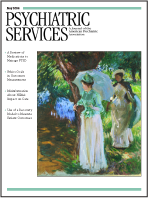Exploring Consciousness
Exploring Consciousness is well written, provocative, and easy to read. It is a comprehensive overview of the enormous strides in our knowledge of consciousness made in the second part of the 20th century. It has an abundance of easy-to-understand, helpful illustrations. Overall, it is a very accessible book for anyone with a medical education who is interested in the problem of consciousness.
The book describes how, over the past million years, the need for survival has selected and shaped the human nervous system we now know. However, despite all the achievements in this field, very little is clear about human consciousness. Is our consciousness merely an illusion? Is it a by-product of our brain's working, or is it the very fundament of reality? The author has let several leading, well-known, modern American and European scholars provide several well-written, topical essays that complement her own accounts.
The book starts with a provocative question—whether our vision is a kind of "grand delusion." According to Carter, almost everything we see is, in effect, a grand delusion. When we look outside ourselves, only the few items that catch our attention are directly sensed; everything else consists of nothing but the knowledge that it is there. If our attention were to turn to what we don't directly sense, we would be able to bring about certain neurological changes that would provide us with additional direct knowledge.
Carter makes the point that all mental states, including thoughts, feelings, perceptions, and sensations, may occur consciously as well as unconsciously. So far, despite continuous research, consciousness is still difficult to explain. Hypotheses abound. It could be that there are two basic aspects of consciousness—a physical aspect and a phenomenal one. It is possible that the stream of consciousness is produced by constantly shifting brain states, most of which are themselves unconscious and are produced by an antecedent brain state that gives us an illusion of consciousness, directing its own course. It may be possible that consciousness really does create itself, by affecting the physical states from which it emerges.
Exploring Consciousness keeps readers curious to find out more about the nature of consciousness and about current research efforts in this field. For example, it has been found through electroencephalography that the brain starts to execute a voluntary movement nearly half a second before the person reports being aware of his or her decision to act. Such issues as a quantum description of mind, brain within brain, predicting the present, and various other issues keep the reader engaged.
Dr. Sheikman lives in Shrewsbury, Massachusetts.



